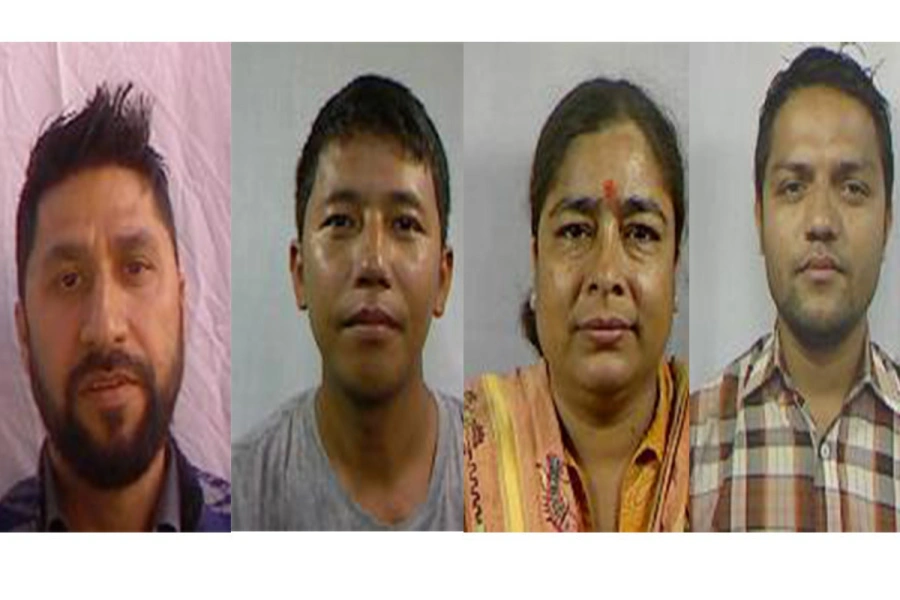Nepal marked its 75th Democracy Day on Tuesday. This day of Falgun 7 according to Nepal's official calendar marks the beginning of the country's steady yet full circle transition to a Federal Republic, which materialized with the promulgation of the Constitution in the year 2015. The past 75 years witnessed three cycles of democratic movement. What may perhaps be called the "first wave" culminated in the establishment of democracy in Nepal, ending a 104-year Rana oligarchy on February 18, 1951. It was on this day when a rubber stamp monarchy throughout the Rana regime was restored to its dignified position as sovereign. Several people had sacrificed their lives. The most respected of them were Shukra Raj Shastri, Dharma Bhakta Mathema, Ganga Lal Shrestha and Dasarath Chand, who were shot dead or hanged to death within a span of six days between 23 and 28 January, 1941. Their crime: Demanding end to Rana rule and advocating for a country free from the clutches of the oligarchs. Their sacrifices helped build on and concretize the groundwork already underway for the cause of democracy. Prominent leaders like Tanka Prasad Acharya, Nepali Congress visionary Bishweshar Prasad Koirala and his elder brother Matrika Prasad Koirala were leading the pro-democracy movement from beyond the borders, with Ganesh Man Singh and Krishna Prasad Bhattarai alongside, in the front line. The institution of monarchy was restored. Mohan Shumsher, the last scion of the Ranas, led a tripartite government as the prime minister. King Tribhuvan acknowledged the sacrifices in his maiden address to the nation: "This is our present desire and decision that our people be governed under a republican constitution formulated by a constituent assembly of their choosing…"
Nepal's Tryst with Democracy and Destiny

Such a proclamation made by a sovereign monarch would never materialize, laying a shaky foundation for a nascent democracy which looked – retrospectively – destined for political topsy-turvy in the decades that would follow. Fast-forward to 1961. The monarchy stages a royal coup, dissolves parliament, jails the popularly elected prime minister and all democratic leaders, bans political parties and takes full control of the system. Scores are killed in the run-up to the "second wave" that culminated in the restoration of democracy under a democratic movement led by one of jailed freedom fighters – the iron man, Ganesh Man Singh, in 1990. The people were back in power in a representative democracy. The newfound freedom had heightened popular aspirations in a democracy struggling to set up a "system" and create functional, efficient institutions that would ensure delivery of goods and public service. Unfortunately, things started screeching to a halt gradually by the mid-1990s with the Maoists launching a crippling, armed insurgency that would take the country hostage until 2006. An entire royal family is massacred in between. A businessman prince steps in as the new monarch and takes the leaf out of his dad's political text book. He stages a coup, scraps a democracy in favor of "direct democracy" and jails pro-democracy leaders, including the prime minister. In the year 2002, Nepal returns politically to 1961. The people know what they want. The decade-long Maoist insurgency ends in 2006. The freedom fighters regroup and reorganize yet again, fight back and wrestle the power back from a discredited monarch with the help of the Maoist insurgents. A Constituent Assembly, originally promised but never delivered by the grandfather king, ultimately materializes under his grandson. The monarchy is voted out, turning Nepal into a federal republic under a new constitution promulgated by the Constituent Assembly in 2015.
Nepal spent the past 75 years struggling and settling for a political order. We finally have it. Additionally, we have created systems, mechanisms and institutions but they have failed to deliver in the public eyes. Corruption is rampant. Politics has been reduced to the game of power. The economy virtually stands still. Unemployment is growing. Public frustration is rising. On the face of it, everything looks hunky dory. Take a deeper look and you find hardly anything in order. This certainly is not what the people desired, or fought for whenever they marched alongside the political leaders. As we celebrate Nepal's 75th D-Day, we must warn the leaders: It is high time they shaped up or shipped out.







































